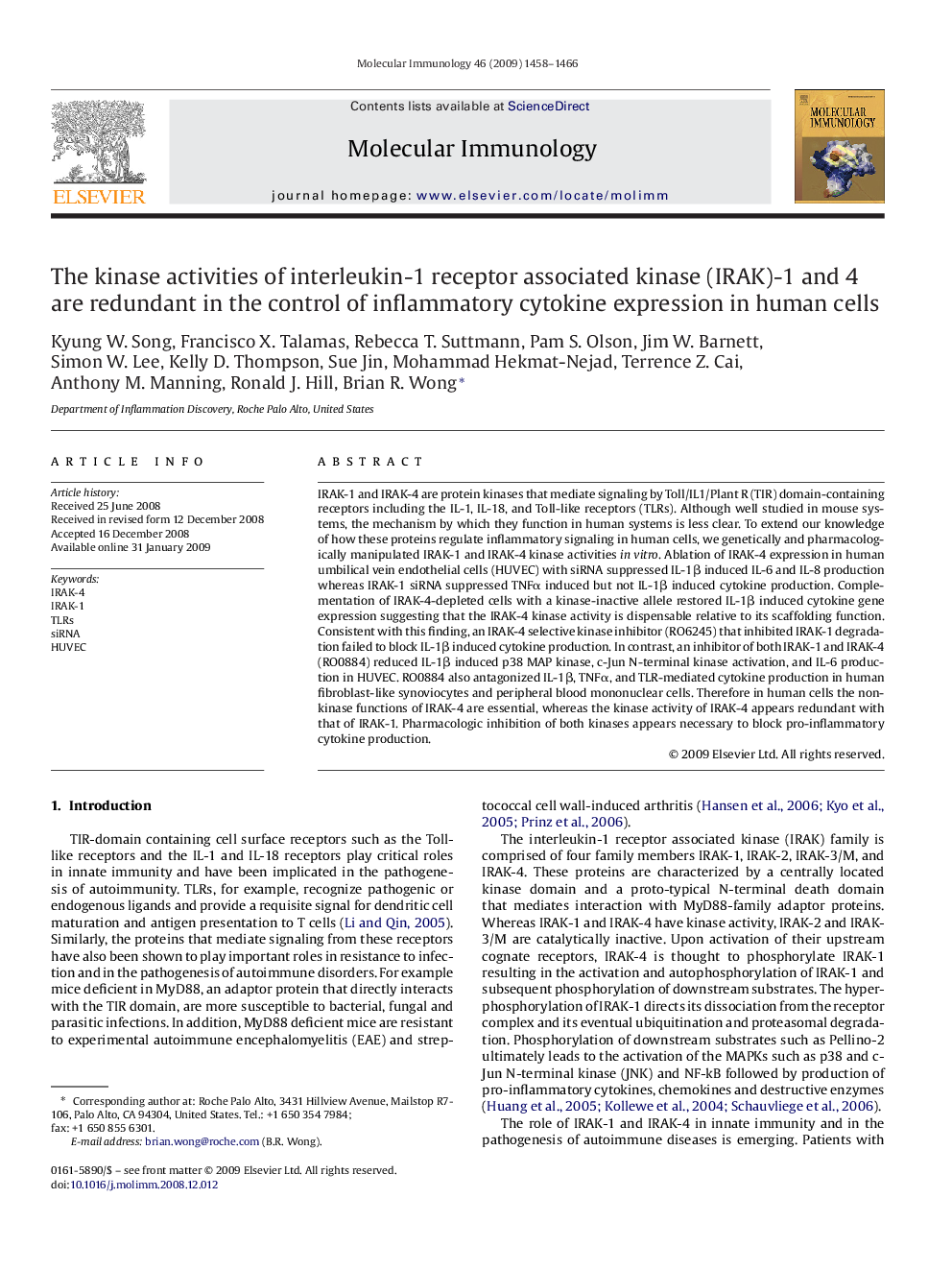| Article ID | Journal | Published Year | Pages | File Type |
|---|---|---|---|---|
| 5917903 | Molecular Immunology | 2009 | 9 Pages |
IRAK-1 and IRAK-4 are protein kinases that mediate signaling by Toll/IL1/Plant R (TIR) domain-containing receptors including the IL-1, IL-18, and Toll-like receptors (TLRs). Although well studied in mouse systems, the mechanism by which they function in human systems is less clear. To extend our knowledge of how these proteins regulate inflammatory signaling in human cells, we genetically and pharmacologically manipulated IRAK-1 and IRAK-4 kinase activities in vitro. Ablation of IRAK-4 expression in human umbilical vein endothelial cells (HUVEC) with siRNA suppressed IL-1β induced IL-6 and IL-8 production whereas IRAK-1 siRNA suppressed TNFα induced but not IL-1β induced cytokine production. Complementation of IRAK-4-depleted cells with a kinase-inactive allele restored IL-1β induced cytokine gene expression suggesting that the IRAK-4 kinase activity is dispensable relative to its scaffolding function. Consistent with this finding, an IRAK-4 selective kinase inhibitor (RO6245) that inhibited IRAK-1 degradation failed to block IL-1β induced cytokine production. In contrast, an inhibitor of both IRAK-1 and IRAK-4 (RO0884) reduced IL-1β induced p38 MAP kinase, c-Jun N-terminal kinase activation, and IL-6 production in HUVEC. RO0884 also antagonized IL-1β, TNFα, and TLR-mediated cytokine production in human fibroblast-like synoviocytes and peripheral blood mononuclear cells. Therefore in human cells the non-kinase functions of IRAK-4 are essential, whereas the kinase activity of IRAK-4 appears redundant with that of IRAK-1. Pharmacologic inhibition of both kinases appears necessary to block pro-inflammatory cytokine production.
